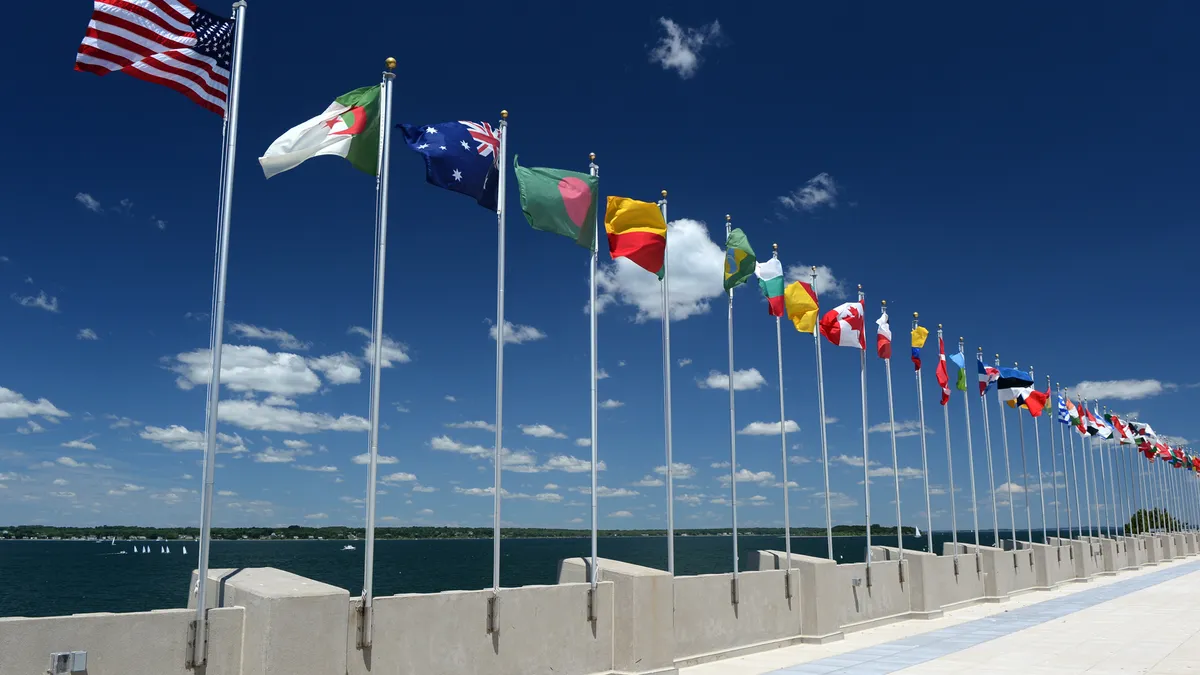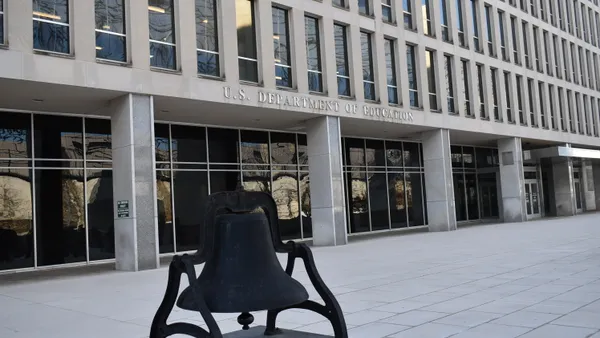Dive Brief:
- Tighter visa policies are often blamed for international students' waning interest in American higher education, but high tuition prices and increased competition from other countries may also be factors, according to a new report in EducationNext.
- Private colleges in the U.S. have significantly higher tuition rates than institutions in other countries, Alex Usher, president of Higher Education Strategy Associates, points out. That's spurred some international students to look elsewhere for college.
- Selective colleges can still draw international students because of the demand for a prestigious education, Usher says. But less-selective colleges, which may be perceived as providing a lower-quality education, are taking a hit to enrollment and their bottom lines.
Dive Insight:
New international student enrollment has dropped for the second straight year in 2017-2018 after a decade of steady growth, according to the Institute of International Education. Surveyed university officials have blamed visa delays for this trend, while other research suggests the current political climate may be a factor.
Similarly, the U.K. and New Zealand, have seen little or flat growth in international students amid government policies that make it hard to attract foreign students. The same could be happening in the U.S., the report notes.
"There is a Trump effect — that's pretty clear," Usher told Education Dive in an interview. But, he added, "It's possible to overstate how big it is."
The enrollment slump isn't affecting every U.S. college, he noted. While elite institutions have fared better, many less research-intensive institutions — especially those with higher tuition — are grappling with lower international headcounts.
"Where you're seeing it is exactly where you're seeing problems in the domestic market," Usher said. "In the same way American students are dubious about the value proposition of those schools, international students are dubious, too, and they've got alternatives."
International enrollment declines have dealt financial blows to several colleges, which often rely on the higher rates those students pay to subsidize tuition discounts for domestic students.
The University of Central Missouri, for example, lost out on an estimated $14 million in revenue after 1,500 fewer international students enrolled in the 2017-18 academic year than the year before. And George Washington University said several Chinese students backed out of enrolling amid a strained relationship between the U.S. and China.
Even elite institutions, such as Princeton and Yale universities, are urging the U.S. government to expedite the visa approvals so they don't lose their admitted students. Others are worried students will be outright denied.
U.S. Customs and Border Protection fanned those fears this week when it denied U.S. entry to a Lebanese student bound for Harvard University. He told the university's student newspaper that officials revoked his visa after they searched through his electronics and said they found people on his social media posting "political points of view that oppose the U.S."
However, Usher warned the international declines may continue even if the U.S. softens its visa policies. "(Colleges) are going to be in a fight for students," he said. "It's not going to magically go away when Trump goes away."
Government policies pose one barrier to drawing foreign students, but universities can also get in their own way, said Rahul Choudaha, executive vice president of global engagement, research and intelligence at Studyportals.
Instead of being treated as "cash cows," Choudaha said, international students should be welcomed when they step foot on campus. "It's not as much about how many international students are on the campus as much as it is about how well the university can sustain and support (them)," he said.













